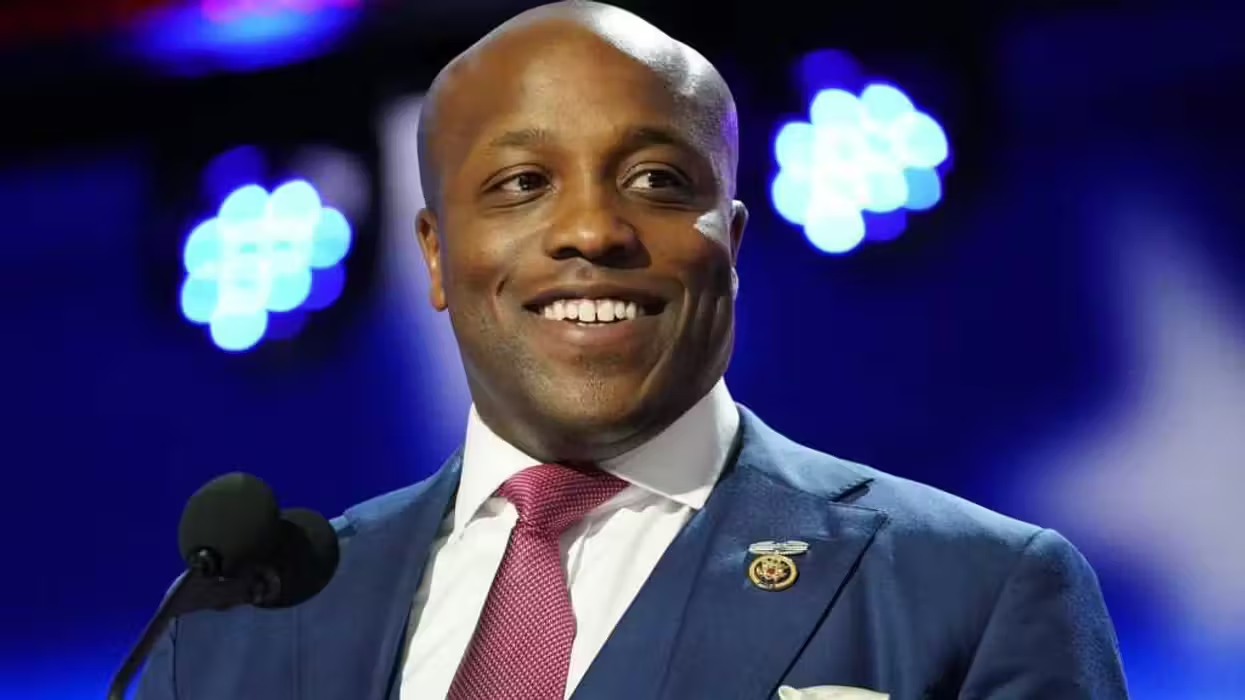This piece was originally published on Forbes.com
-
Wars are always tragic. They have not been an easy topic for lovers of the free society.
They have helped liberate and bankrupt nations. Think tanks that agree on many economic topics often have very different views on how to defend a country against foreign aggression and terrorist threats. Yet, once a decision to go to war is made, there is a consensus that governments should not monopolize all aspects of war. Most agree on the convenience of relying on the private sector for the production of weapons and instruments of war.
There is more debate on the importance of relying on the efficiency of the private sector when it comes to personnel.
Erik Prince’s book, “Civilian Warriors: The Inside Story of Blackwater and the Unsung Heroes of the War on Terror ,” provides a personal account of the intense use of private sector soldiers in recent wars. As Blackwater was used mostly for safeguarding U.S. occupying authorities, a more accurate title of the book may have been “Civilian Protectors.”
,” provides a personal account of the intense use of private sector soldiers in recent wars. As Blackwater was used mostly for safeguarding U.S. occupying authorities, a more accurate title of the book may have been “Civilian Protectors.”
Blackwater suffered its first casualties in Fallujah protecting, not attacking.
For those who want to understand how wars are being conducted, and will likely continue to be waged whenever the U.S. is involved, the book is a must read. I recommend that as a complement you also read “Jawbreaker: The Attack on Bin Laden and Al-Qaeda: A Personal Account by the CIA's Key Field Commander ” by Gary Bernsten.
” by Gary Bernsten.
[sharequote align="center"]Get first-hand accounts of the complexity of today’s wars and the many agencies involved[/sharequote]
With both you get first-hand accounts of the complexity of today’s wars and the many agencies involved. The military, the State Department, and the CIA not only have different cultures and goals, but also differences within their own units. Private contractors suffer not only from enemy fire, but as it is clearly shown by Prince, they are often victims of “friendly” bureaucratic and legal fire.
The main lessons that I get, however, do not come from the battles, rescues, and accidents so vividly described in the book. They come from the application of entrepreneurial talent in defense, security and intelligence.
 A file photo dated September 8, 2003 showing US guards of Blackwater security company protecting Paul Bremer, the U.S. civilian administrator in Iraq (3-L), as he arrives to meet with Nesreen Mustafa Barwari, Iraqi Minister of Public Works in Baghdad, Iraq. (Credit Image: ALI HAIDER/EPA/KEYSTONE Press)
A file photo dated September 8, 2003 showing US guards of Blackwater security company protecting Paul Bremer, the U.S. civilian administrator in Iraq (3-L), as he arrives to meet with Nesreen Mustafa Barwari, Iraqi Minister of Public Works in Baghdad, Iraq. (Credit Image: ALI HAIDER/EPA/KEYSTONE Press)
“Civilian Warriors” is full of business stories. From the use of smaller helicopters, to retrofitting old armored cars, to the building of the Polar 400—Blackwater’s dirigible. The Polar 400 succeeded in flight but not in sales. Given the difficulties of insuring helicopters, planes and other items under war conditions, Prince had to become a self-insurer. Choosing to live in Abu Dhabi, rather than in McLean, Va., or Holland, is a form of self-insurance.
So it is writing this book. After reading the book, it becomes clear that it is not only foreign enemies who might wish to silence him.
Prince got his entrepreneurial insights from his father and the classroom. He had the wisdom to choose a college, Hillsdale, where the economics department recognizes the creative role of the entrepreneur. As he writes, “The thing that truly appealed to me about Hillsdale was its focus on libertarian, free-market economics.”
It was there that, as an economics and political science minor, Prince learned the economics of the Austrian School which, in his words “lionizes long-term laissez-faire policies without government intervention.” Hillsdale, like Grove City College, which also teaches Austrian economics, is one of the few colleges which does not accept government money. They are determined to protect their academic freedom without government oversight. Blackwater benefitted from government contracts, and Prince learned much about the costs attached to them.
When he created the company nothing could presage what would be its explosive growth. In 1999, it was calculated that the maximum yearly revenue would reach $1.7 million, and that seemed optimistic. During the 10 years under his helm, the company brought in close to $2 billion in revenues. The demand for security training increased after the shooting at Columbine and the attack on the USS Cole. Demand skyrocketed after Sept. 11, 2001. Blackwater facilities and human capital were ready.
Prince writes that he created Blackwater when he realized that:
“what got created under monolithic government control was dramatically inferior to what came from a free-market company whose very survival was pinned to the quality of its work. I told my men to think like Mercedes, and we turned Blackwater into a self-contained machine that would recruit, vet, equip, train, deploy, and support all manner of men to accomplish some of the most difficult missions in the world, all for a fraction of what the DoD typically spent.”
Given the lack of transparency in government defense contracts involving overt and covert intelligence, as an economist I can’t certify the cost advantage of private military contractors. But I have no reason to think that this area is much different than others in government procurement.
Prince provides a history of famous private military contractors. His favorite is Christopher Columbus, but he also mentions the example of Gilbert de Lafayette, Thaddeus Kosciuszko and other foreign fighters that have earned a place in U.S. history and their own statues in Washington. As he tried to hire those motivated by helping protect the U.S., he rejects the term mercenaries, who fight just for money. Milton Friedman once reminded Gen. William Westmoreland that, “we are served by mercenary physicians, we use a mercenary lawyer, and we get our meat from a mercenary butcher.”
Whatever the name, it is clear that more and more protection against local and foreign aggression will come from private contractors.
F. A. Hayek, the Nobel Laureate of the Austrian School, argued that if it wouldn’t be the market and entrepreneurial activities that create millionaires, then it would pay to create them by lottery. He saw it as indispensable for the free society to have people who would not be afraid to think out of the box, to take and assume entrepreneurial risks. In the field of defense, Erik Prince is a prime example. The motto of his latest business endeavor is Fortuna Audaces Iuvat—“fortune favors the bold.” He says, “I’m done keeping quiet.” It seems he is not done taking risks.
–
TheBlaze contributor channel supports an open discourse on a range of views. The opinions expressed in this channel are solely those of each individual author.

 A file photo dated September 8, 2003 showing US guards of Blackwater security company protecting Paul Bremer, the U.S. civilian administrator in Iraq (3-L), as he arrives to meet with Nesreen Mustafa Barwari, Iraqi Minister of Public Works in Baghdad, Iraq. (Credit Image: ALI HAIDER/EPA/KEYSTONE Press)
A file photo dated September 8, 2003 showing US guards of Blackwater security company protecting Paul Bremer, the U.S. civilian administrator in Iraq (3-L), as he arrives to meet with Nesreen Mustafa Barwari, Iraqi Minister of Public Works in Baghdad, Iraq. (Credit Image: ALI HAIDER/EPA/KEYSTONE Press)






